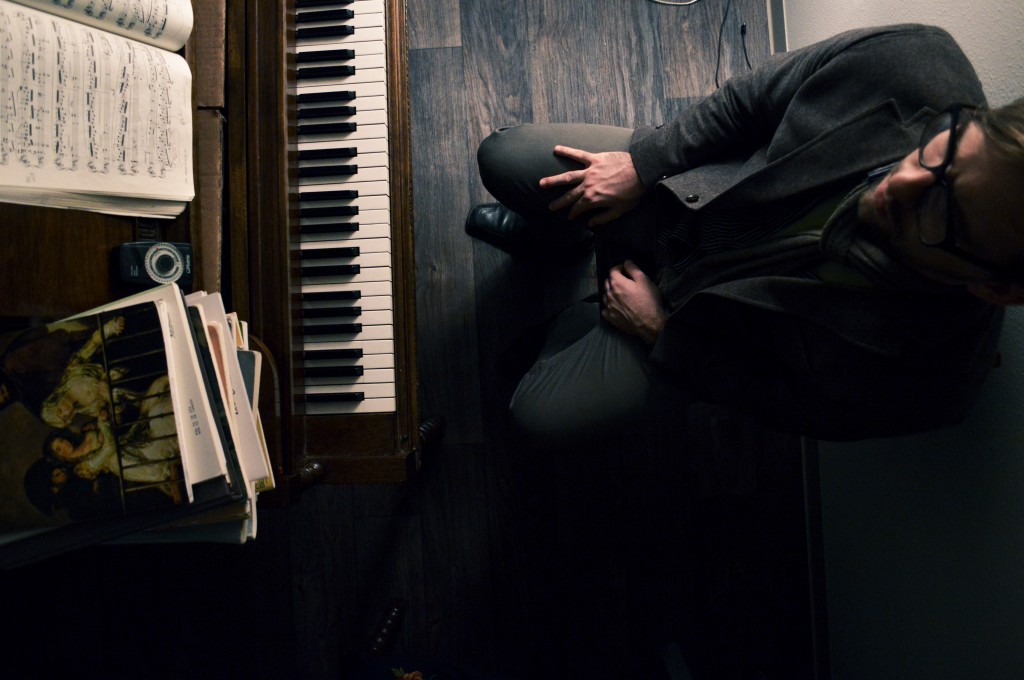Truth be told, the switch to online teaching in the age of coronavirus wasn’t that difficult for local piano teacher Matthew Pavilanis.
“My earliest teaching experience was actually a remote experience,” Pavilanis says. “When I was in sixth grade, a fellow student got word that I was a guitarist and began calling me to talk about guitar related topics.”
Before the virus hit, Pavilanis had about 70 students he was teaching through either in-home lessons or at his studio in Eugene, where he has two grand pianos, among other instruments. Many independent teachers and music schools have had to postpone classes through April, or longer, but Pavilanis has found a way to keep teaching — and to keep making music — through self-designed online classes
Some of the changes Pavilanis had to make felt intuitive to him at first. The physical assignment books that kept students on track could be shared as a Google Doc. He can use music notation software to help explain theory, and pre-recorded video lessons can be uploaded and accessed by students at any time. He’s even still doing live lessons through video chats with most students.
“The one thing that’s really difficult is being able to improvise together,” Pavilanis says. “So it’s about creating a framework and structures to help a student really jam.”
Pavilanis explains that one of the most important aspects of teaching music is letting a student improvise with the riffs they’ve just learned. It’s this freedom of expression that allows students to expand on the music by creating something of their own.
“The way I would do it normally is by taking something from their piece, some kind of inspiration that came from their lesson, and then we freely go with it for like five minutes,” Pavilanis says. “That’s a little bit harder to do online. There’s a lot of different elements to music education”
Before finding his muse in classical piano, Pavilanis had already lived the life of a musician. When he was 16, his parents let him and his older brother Jason leave their hometown in Michigan to head to Los Angeles to start a rock band. Pavilanis got his high school diploma through a correspondence school — another early example of remote learning.
“It was a rock ‘n’ roll band, and I love that music, but it wasn’t how I wanted to express myself.” Pavilanis says. “I think I was in L.A. for six months before I made the final decision, because for me it was about what I was wanting to do with music.”
Pavilanis was introduced to the piano while taking lessons in order to learn how to better write songs for his band. However, he says, he quickly fell in love with instruments and began devouring classical music from greats like Chopin and Beethoven. A year and a half later, he was enrolled in the School of Music at the University of Oregon, where both he and his wife eventually earned graduate degrees. Staying in Eugene wasn’t a tough choice.
“It just kind of naturally happened when grad school ended,” Pavilanis says. “We fell in love with the culture and we just really love the people here. I knew it was where I wanted to set down roots and build a musical community.”
The community Pavilanis built is now fully online. Parents are also adapting to the quick change in routine.
Chris Tee is a local parent with two kids taking piano lessons with Pavilanis. “These virtual lessons have provided a sense of normalcy for my kids. It’s the one thing that the kids still have access to, as everything else has seemingly been canceled or closed,” Tee says. “As the sense of smell plays a powerful role in our memories, the sounds of the melodies played at home will also bring to memory this unique occasion in our lives. For certainly, the times we’re living in are quite peculiar.”
A silver lining to forced remote learning, according to Pavilanis, is the now limitless capacity of the classroom; with pre-recorded lessons and easily shareable assignments, the number of students able to be taught increases dramatically. Students can advance at their own pace, and Pavilanis can be available to help one on one when needed.
“This is really unprecedented,” Pavilanis says. “So we’re going to have to work extra hard to actually provide a place of learning and continuity for the kids.”
Through a collaboration with Gopher’s Music Gear on Willamette Street, Pavilanis is offering 50 percent off the first month of online lessons with the purchase of any new or used instrument.
Pavilanis is reachable at 269-267-3664 or by email at matthewpavilanis@gmail.com. Contact Gopher’s Music Gear for discounted lessons and equipment by calling 541-485-1153 or by email at jason@gophersmusicgear.com.
